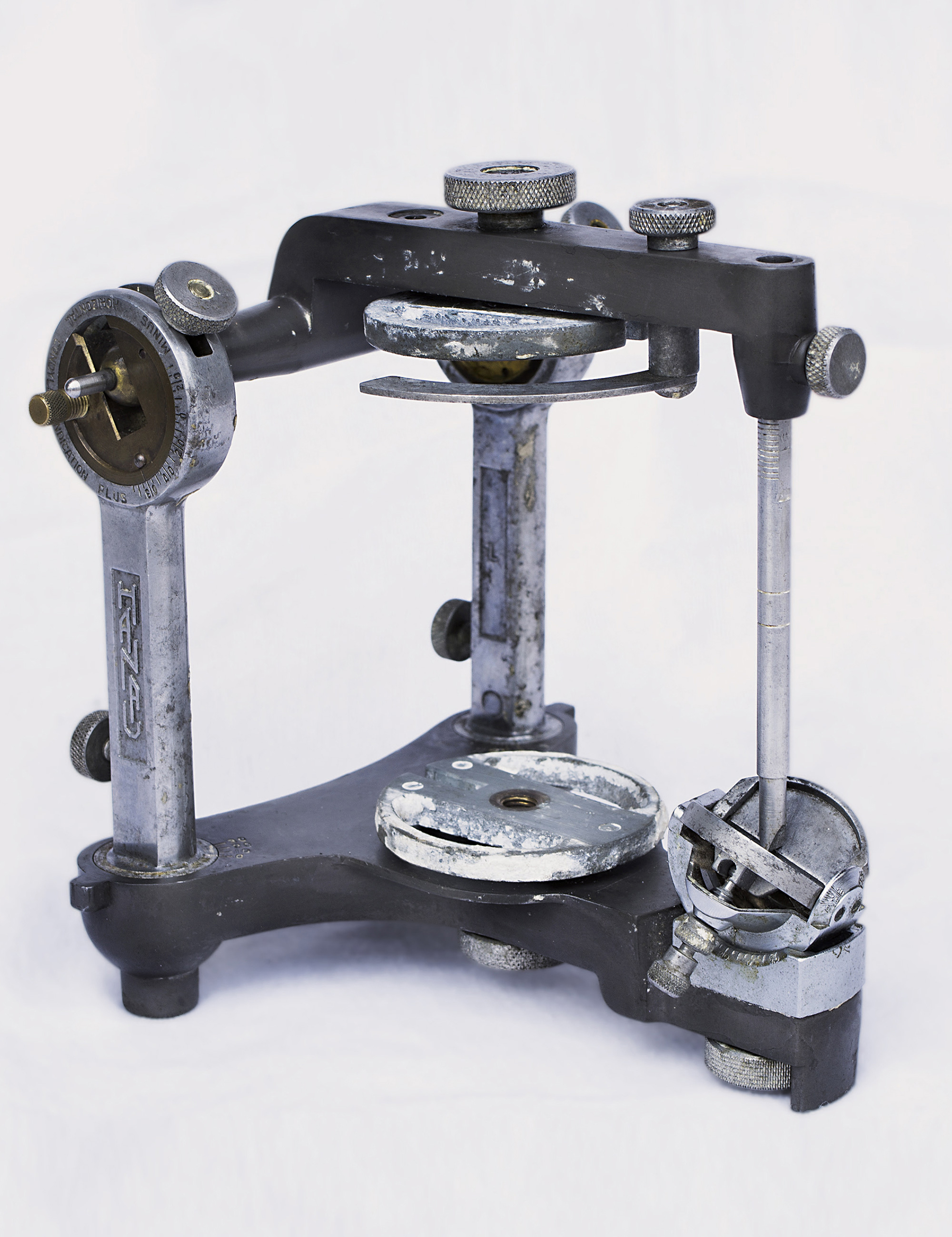Thing / No. 4
Left to their own devices
Sally O’Reilly, Leland de la Durantaye, and Adam Jasper
“Thing” is a column in which writers in various fields identify and describe a single found object not recognizable to the editors of Cabinet.
Note the white scuffs. No, these are not caked-on flour or narcotics. This is neither a precision crêpe-making appliance nor a finely calibrated pair of scales. The white residue is in fact the tacky leavings of badly chosen tape, most likely used during transit. It would seem that, contrary to the manufacturer’s advice, this has been moved while still assembled. Ideally, it should be taken apart and reassembled by an expert, and retuned to each location.
Look at the descending letters on the left. We can infer from the characters’ interpenetration that this is a logo. But if you think that the final letter is an ornamental l, that this brand name is some hideous compaction of heinous and anal, and that this apparatus is employed in a harrowing penal colony–style punishment for sodomy, you are sorely wrong. That final letter is a u, spelling the proper noun Hanau. Although if you happen to know that hana in Czech means “blame,” and you assume the u to be a creepy informality, the former hypothesis might still seem to be supportable. But this is sheer coincidence.

The circular-set text above Hanau offers the best clue of all. The numerical calibration flanked with “plus” and “minus” suggests a need for more or less of something. But what? Since I lack the patience to indulge your hopeless guesses, let me tell you. This device gauges the precise curvature of a sweeping generalization.
The Hanau Sweep Indicator is used in numerous polemical situations, from debating society training sessions and dogma purges to bigotry inquiries in classrooms, bars, or boardrooms. The retuning performed by the aforementioned installation expert is necessary to accommodate bulges in social pressure, worn patches in the weft of gravity (actual and metaphorical), and irregular fluxing of arguments in the vicinity. Once the apparatus is installed and operational, a section of a sweeping generalization is laid across the central disk, the bowed arm above presenting an optimum curvature against which to measure the divergence of the sweep in question. The component to the right then extrapolates the sweep to its grossest conclusions, yielding clearer criteria for judgment, and folds the sweep back on itself to test for reflexive viability.
In some instances, the sweep of a generalization will be deemed to have passed the Hanau test when the divergence, extrapolation, and fold readings all fall within stipulated limits. In other instances, two out of three “good” readings are acceptable. In a very limited number of circumstances, only an acceptable divergence from the optimum sweep is required. If a sweeping generalization has been identified as unacceptable within a given framework, it may be subjected to the Hanau Assumption Buster, then finished off with the Hanau Nuance Aggregator. The manufacturer recommends that all devices be used in conjunction with the full Hanau Correctness Range.
—Sally O’Reilly
• • •